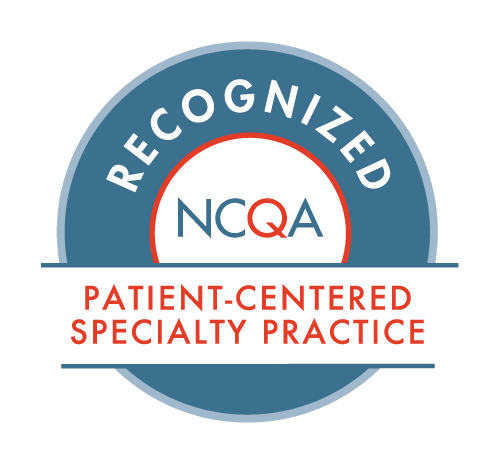Cardio-Oncology Clinic
Hunterdon Cardiovascular Associates has teamed up with Hunterdon Hematology & Oncology to start a Cardio-Oncology clinic. A dedicated Cardio-Oncology clinic will allow cancer patients to be screened and treated for specific cardiac diseases either associated with their cancer or with chemotherapy agents, such as hypertension, valvular heart disease, and peripheral vascular disease, among others. Also, by utilizing state of the art 3D echo/volume analysis with strain technology we can detect cardiomyopathy, or a weakening of the heart muscle, that results from chemotherapy agents before the disease progresses.
By doing so patients will be treated for their cancer with significantly less concern for developing heart failure as an adverse reaction. Working together with your cancer doctor we can detect and treat these cardiovascular diseases before it’s too late.
What is cardio-oncology?
Cardio-oncology involves the treatment of cancer patients who, as a side effect of their cancer treatment, are having cardiovascular problems. These heart problems arise from certain types of cancer drugs or from radiation therapy. This pairs cancer specialists with heart specialists to ensure the cancer treatment can progress without concern for the patient’s heart condition.
What does a cardio-oncologist treat?
Cardio-oncologists treat the side effects that cancer treatments are having on the patient’s heart. Cardio-oncologists treat both cancer survivors and patients currently receiving cancer treatments. These doctors are focused on how chemotherapy, radiation therapy, and other newer treatments and medications are impacting the heart.
What services does the Cardio-Oncology Clinic offer?
We screen and treat patients for a variety of specific cardiac diseases and conditions related to cancer treatment. We work with the patient’s cancer treatment team to proactively address heart conditions as the cancer treatment progresses. We seek to prevent, or at least reduce, further cardiac damage that results from cancer treatments. Sometimes we can reverse this damage.
“Excellent experience especially with Dr. Horiuchi and Dr. Schafranek. They are both very caring and professional. They are both responsible for the good health I am in today. I have been in Dr. Horiuchi’s care for almost 20 years and in Dr. Schafranek’s care the last couple years. Thank you both for your good judgement and exceptional talents.” -Helen
What tests will the Cardio-Oncology Clinic run?
Our Cardio-Oncology Clinic will take tests before you begin your cancer treatment, if possible. This is to set an initial benchmark for how your heart functions before it is impacted by your cancer treatment. These tests will likely include:
- Electrocardiogram (ECG) — An electrocardiogram provides a picture of your heart’s electrical activity. The electric signals passed across your heart initiate the heartbeat and regulate its normal rhythm. Cancer drugs and radiation can cause arrhythmias, where your heart is beating with abnormal rhythm.
- Echocardiogram — This ultrasound test provides images of your moving heart. Strain imaging evaluates the unction of the heart muscle.
- Ejection Fraction — The muscle of your heart is in the left ventricle. With each heartbeat, this muscle needs to push a certain amount of blood out of the left ventricle to the rest of the body. We measure your ejection fraction, which is the amount of blood being pushed out. Some cancer treatments can lower this number. To take this measure we may use echocardiograms, MUGA scans, or cardiac MRIs.
- Cardiac Catheterization — We may run a catheter, usually through an artery in the groin, up to the heart to evaluate the arteries of your heart.
What are the benefits of adding cardio-oncology expertise to my cancer treatment?
The benefits of considering the effects your cancer treatment may be having on the health of your heart are both physical and mental. Our experts will ensure better outcomes by providing early detection of cardiac toxic effects coming from your cancer treatment. We’ll prevent, reduce, or possibly reverse those effects. Mentally, you’ll not have to worry about how your heart is responding to your cancer treatment, leaving you free to focus solely on beating your cancer.
How does a cardio-oncologist help?
This is a relatively new area of cardiology. Formerly, so much attention was placed on the cancer patient’s cancer treatments that possible side effects on the heart were overlooked. Now, as more and more patients survive cancer, yet still need ongoing treatment to keep it in remission, the ability to monitor potential effects on the heart condition of the patients can detect problems earlier and reduce further cardiac damage.
What heart conditions are cancer patients at higher risk for?
In the past, the more common cancer treatments — chemotherapy and radiation therapy — have lead to the side effects of high blood pressure, abnormal heart rhythms (arrhythmia), peripheral vascular disease, and even heart failure. Chemotherapy, in particular, can lead to cardiomyopathy, a weakening of the heart muscle.
But new cancer therapies are continually coming into use, such as targeted therapies and immunotherapies. These involve new drugs that have different impacts on the heart. These are also known as cardiotoxicities. For instance some immunotherapy drugs create inflammation of the heart muscle, a condition known as myocarditis.
The role of our cardio-oncology team is to stay at the forefront of this evolving area of cancer treatment and cardiovascular treatment. This will include understanding the impact of new drugs and treatments as they come into use.
Schedule A Consultation
If you or a loved one has cancer or has been treated for cancer in the past, you may be suffering from cardiovascular disease due to chemotherapy treatment. Discuss with your oncologist if you would be a candidate for this program. To learn more about Cardio-Oncology from Hunterdon Cardiovascular Associates, contact us today at (908)-788-1710 to schedule a consultation



